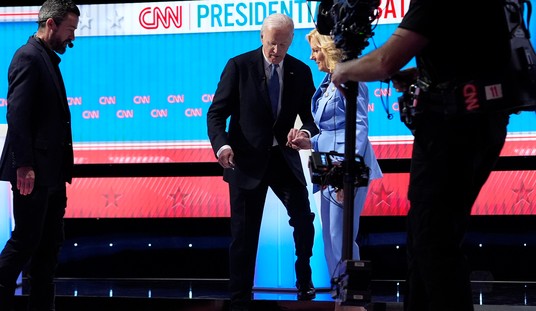True, but good luck getting most people to realize it after the epic faceplant from the Associated Press last night. Had the AP stuck to the real story, we would have been discussing how Terry McAuliffe invested money in a scheme to bilk the terminally ill out of their money, and then recruited its mastermind as a political contributor.
The Washington Post, to its credit, isn’t letting go It’s headline reads, “McAuliffe among investors in Rhode Island insurance scam that preyed on dying people,” which isn’t exactly the kind of headline one needs less than four weeks out from an election:
Virginia gubernatorial candidate Terry McAuliffe was one of dozens of investors with a Rhode Island estate planner charged with defrauding insurers by using the stolen identities of terminally ill people, according to court documents filed Wednesday by federal prosecutors in Providence. …
Federal court documents do not accuse McAuliffe of wrongdoing, and it wasn’t clear whether he had made money or lost money on the investments. His campaign spokesman said McAuliffe was a “passive investor” who was deceived like many others. Spokesman Josh Schwerin also said that the campaign and McAuliffe donated sums to the American Cancer Society totaling $74,000 — approximately the amount McAuliffe earned as a return on the investment and received in a campaign donation from Caramadre.
“Terry was one of hundreds of passive investors several years ago and had no idea about the allegations against the defendant — who, at the time, was widely respected by business leaders and elected officials,” Schwerin said. “The allegations are horrible and he never would have invested if he knew he was being deceived.”
Caramadre and his former employee Raymour Radhakrishnan were charged in November 2011 in a 66-count indictment accusing them of wire fraud, money laundering and witness-tampering. Both men pleaded guilty last November, the FBI said in a press release.
There are a couple of problems with that explanation, one of which Virginia Republicans pointed out before the AP’s reporter overshot on a “scoop” that left egg all over the wire service’s face. First, even though the Caramadre scam got exposed in 2011, McAuliffe didn’t bother to tell anyone about divesting his proceeds from it or donate Caramadre’s contributions to his campaign until, er, yesterday. Coincidentally, that’s when court documents emerged listing McAuliffe as an investor — one who must have scored pretty well, considering how much divestment took place. Caramadre’s contributions amounted to a little over $28,000 according to the Post’s report, which means the other $46,000 must have been the return on McAuliffe’s investment.
Second, what exactly is a “passive investor” on that scale? McAuliffe didn’t have his assets in a blind trust at the time, and one would imagine that McAuliffe would take some care with his own money. If not, then how much care will McAuliffe have with everyone else’s money as governor of Virginia? As far as being “deceived like many others” (the Post’s reporting, it should be noted, and not a direct quote), the victims here were the terminally ill who had their identities stolen and who got exploited for an insurance scam. At the very least, McAuliffe contributed to that scam through his own carelessness about his investments — which isn’t a very good example of the kind of executive judgment that most people want to see in a governor.







Join the conversation as a VIP Member